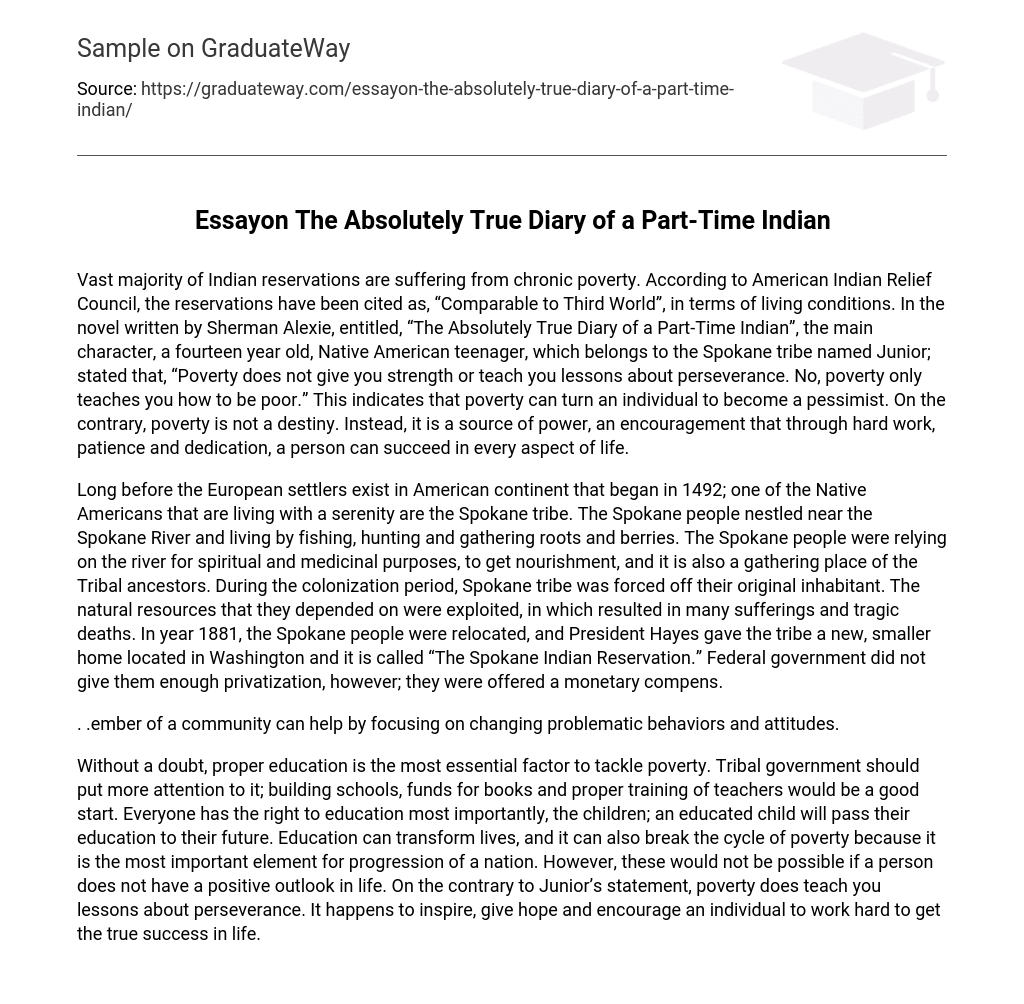According to the American Indian Relief Council, the majority of Indian reservations in India are suffering from chronic poverty. These reservations have been compared to Third World countries in terms of their living conditions. In Sherman Alexie’s “The Absolutely True Diary of a Part-Time Indian,” the protagonist is Junior, a 14-year-old teenager from the Spokane tribe who is Native American. Junior believes that poverty does not strengthen or teach perseverance; instead, it only teaches how to be poor. This suggests that poverty can lead to a negative perspective. However, poverty is not an unavoidable fate; it can serve as a motivating force that pushes individuals to work hard, show patience, and dedicate themselves to achieving success in all aspects of life.
Before the arrival of European settlers in America in 1492, the Spokane tribe peacefully occupied the area near the Spokane River, relying on fishing, hunting, and gathering for survival. The river held great significance for them as a source of spiritual and medicinal resources, nourishment, and ancestral gatherings. However, during colonization, the exploitation of natural resources they depended on forcibly displaced the Spokane tribe from their original lands, resulting in immense suffering and numerous tragic deaths.
In 1881, President Hayes relocated the Spokane people to Washington and established a smaller territory called “The Spokane Indian Reservation.” Although adequate privatization was not provided by the federal government, monetary compensation was offered to the tribe.
Being a member of a community entails the responsibility of addressing and transforming problematic behaviors and attitudes.
Undeniably, addressing poverty necessitates giving priority to proper education. Tribal governments should concentrate on constructing schools, providing funding for books, and ensuring adequate teacher training in order to accomplish this objective. The right to education is applicable to all individuals, particularly children who can impart their knowledge to future generations. Education possesses the ability to change lives and break the cycle of poverty, making it an essential component for a nation’s advancement. Nevertheless, maintaining a positive perspective on life is also vital in attaining these objectives. Contrary to Junior’s statement, poverty imparts valuable lessons in perseverance; it has the potential to inspire individuals, provide hope, and motivate them towards diligently pursuing genuine success.





